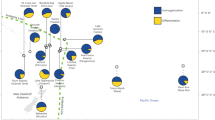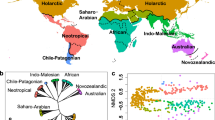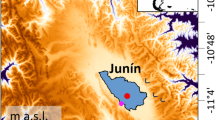Abstract
I. IN these articles the “Early History” of the land flora is understood to cover the Devonian and Lower Carboniferous periods. Before the beginning of the Devonian the records of land plants are too scanty and doubtful to demand much consideration; on the other hand, the flora of the Upper Carboniferous is so rich and so well known that to include it would unduly extend the limits of this brief survey.
This is a preview of subscription content, access via your institution
Access options
Subscribe to this journal
Receive 51 print issues and online access
$199.00 per year
only $3.90 per issue
Buy this article
- Purchase on Springer Link
- Instant access to full article PDF
Prices may be subject to local taxes which are calculated during checkout
Similar content being viewed by others
References
Based on a course of lectures given last spring at University College (University of London).
A. H. Church The Thalassiophyta and the Sub-aerial Transmigration Oxford Botanical Memoirs, III, 1919.
Kidston and Lang, “On Old Red Sandstone Plants, showing Structure, from the Rhynie Chert-bed, Aberdeenshire,“Transactions of the Royal Soc. of Edinburgh, Part I., vol. 51, 1917; Parts II. and III., vol 52, 1920; Parts IV. and V., vol. 52, 1921.
E. A. N. Arber, “Devonian Floras, a Study of the Origin of Cormophyta,“ Cambridge University Press, 1921.
Hugh Miller, “Footprints of the Creator,“ edition of 1861, p. 191.
Rights and permissions
About this article
Cite this article
SCOTT, D. The Early History of the Land Flora1. Nature 110, 606–607 (1922). https://doi.org/10.1038/110606a0
Issue Date:
DOI: https://doi.org/10.1038/110606a0
Comments
By submitting a comment you agree to abide by our Terms and Community Guidelines. If you find something abusive or that does not comply with our terms or guidelines please flag it as inappropriate.



